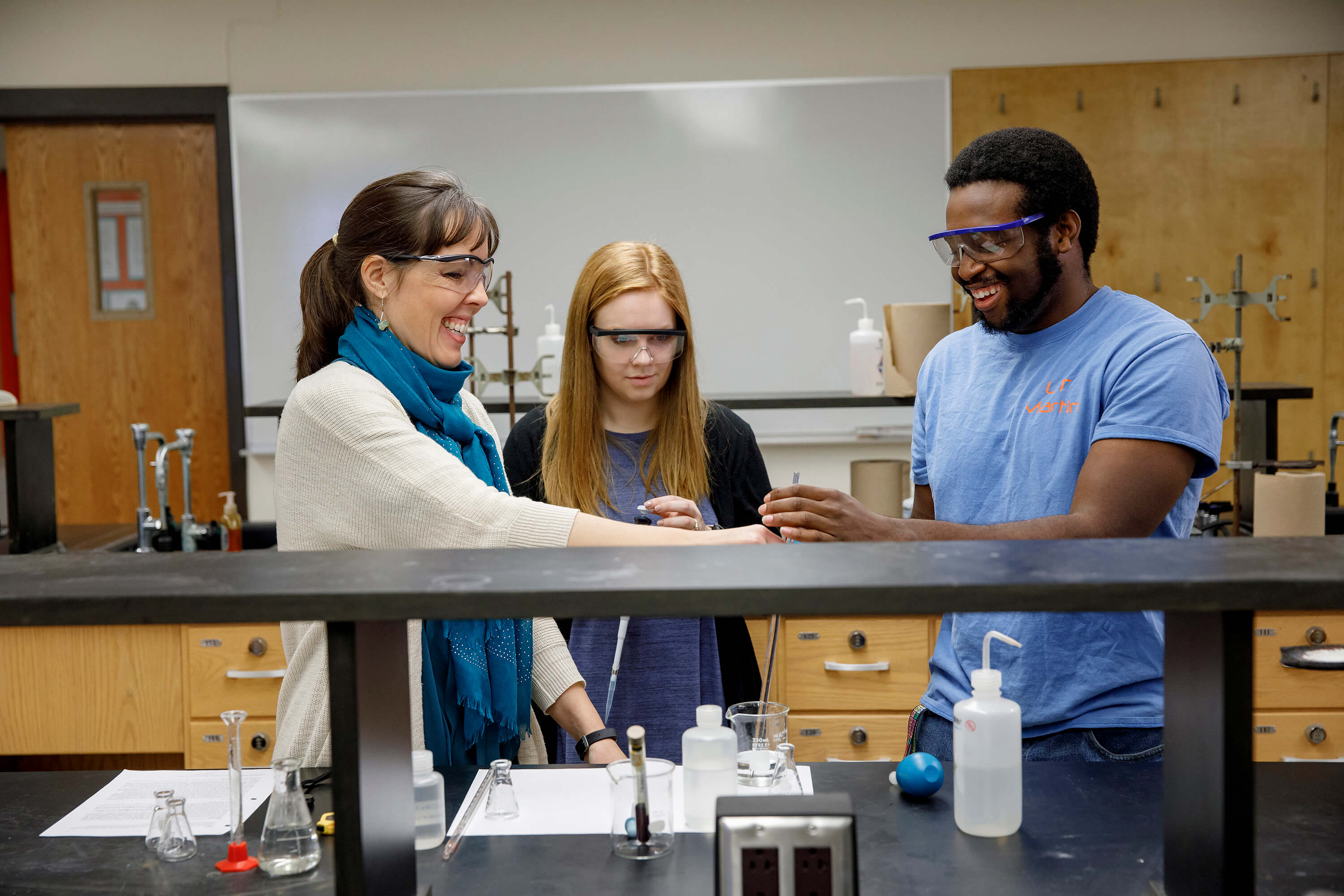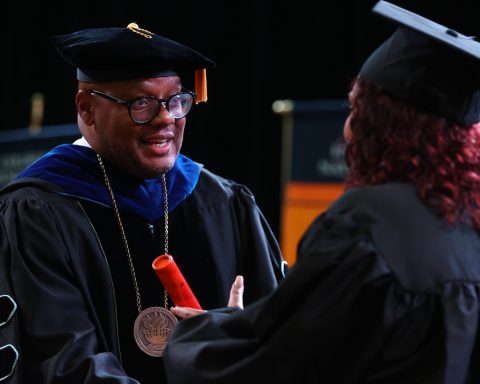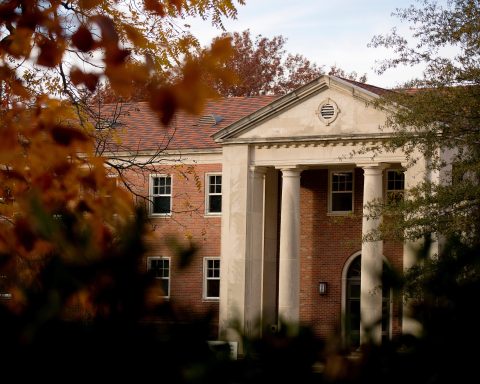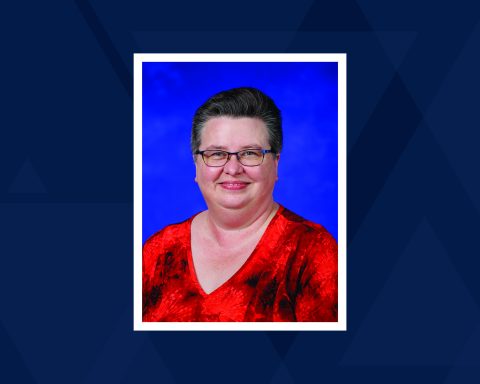The Tennessee State Board of Education recently released a report highlighting the University of Tennessee at Martin Educator Preparation Program as being one of the most-improved programs on the statewide report card in the past year.
“Programs such as that at the University of Tennessee at Martin showcase their commitment to excellence with each graduating class of educators they send into the classroom,” said Dr. Sara Morrison, executive director of the Tennessee State Board of Education. “UTM’s work in preparing future educators not only drives continuous improvement within their program but also sets a model for programs across the state. We are proud of their progress and support them in their continued efforts to graduate educators (who are) ready to take on the critically important, challenging work of educating Tennessee students.”
Donna Neblett, UT Martin program director, says the improvements began five years ago when UT Martin received a Teacher Quality Partnership Grant from the U.S. Department of Education. The $3.3 million grant helped to fund a survey to identify the greatest needs for classroom teachers within the 32 partner school districts. The outcomes were the creation of a new teacher induction program, a series of STEM-based professional development workshops and COMP-certification for all UT Martin education graduates.
COMP, which stands for Classroom Organization Management Program, was specifically identified by area school districts and educators as a high-need area for additional training during the needs assessment. As a result, Neblett says many of the faculty members in the UT Martin Educator Preparation Program attended a weeklong course on the topic at Vanderbilt University and returned as certified trainers prepared to assist education students and graduates in this area. Now, all UT Martin education graduates are COMP-certified before graduation.
The teacher induction program is a key component to UT Martin’s increased statewide scores, which are based largely on new teachers’ evaluation scores and student standardized test scores during the teacher’s first three years in the workforce.
“The induction program was created to offer support for our graduates during the first and second years they teach,” said Neblett. “Some of this support is going to be virtual support. We’ve bought new software so that we can visit classrooms virtually in real time and provide immediate feedback.”
“The assistance I received from this program was probably one of the only things that kept me going as a first-year teacher,” said Kristen McAdams, a biology teacher at Gibson County High School. “My principal told me that UTM was going to be sending someone to observe me a couple of days a week for a while, and she would provide me with assistance in any way that she could. I was very overwhelmed and stressed at that time. … I had no idea how much she would influence me and guide me toward becoming a great teacher. I am still on my way to that, of course, but the tools and strategies she provided me with were invaluable.
“I was able to obtain classroom management skills, teaching resources and the best advice one could hope for. The amount of support that this program provided me with could never be appreciated enough,” she continued. “I have never been so grateful for something I never knew that I needed.”
Neblett hopes the program will not only boost the confidence and teaching strategies of new teachers but also serve as an incentive for school districts to hire those teachers who already have a two-year support system in place.
“As a principal, I can’t be in the classroom all the time. So, you get these teachers who have just left the classroom or who are still in the classroom teaching, and they can come and help these students learn and become great teachers,” said Jim Hughes, principal at Gibson County High School. “You can learn it, you can read about it, but until you sit there with a mentor who is good, who has been in the profession, who has taught in a classroom, and you tell them the ups and downs – that’s a positive right there. That’s a huge positive for us.”
The program has been operational on a small-scale basis for the past year and will be restarted in coming months since the hiring of a new program manager, Cheryl Stewart.
Neblett says the UT Martin educator preparation program has also changed its entrance requirements in order to produce graduates who are more likely to be successful in their future classrooms.
“The state requires a 21 on the ACT, and we raised (our requirement) to 22. At one time, students could enter the program by passing two of three part on the Praxis CORE test. Students must now pass the entire test, and the appeal process requires a narrower approach as well. … In 2019, we became the EPP with the greatest gains in one year than any other EPP in the state,” she said.
For more information, contact Neblett at 731-881-7686 or dneblet1@utm.edu.
###











